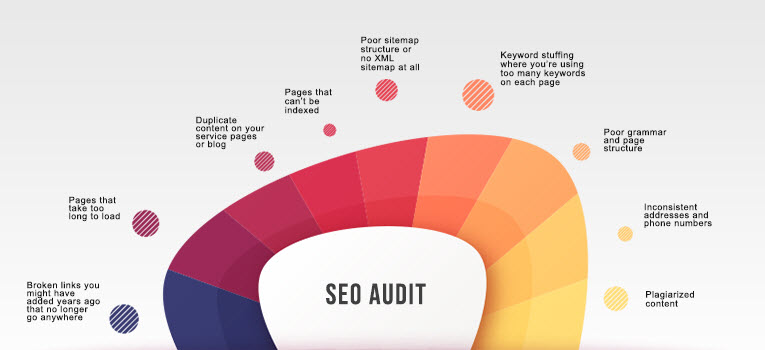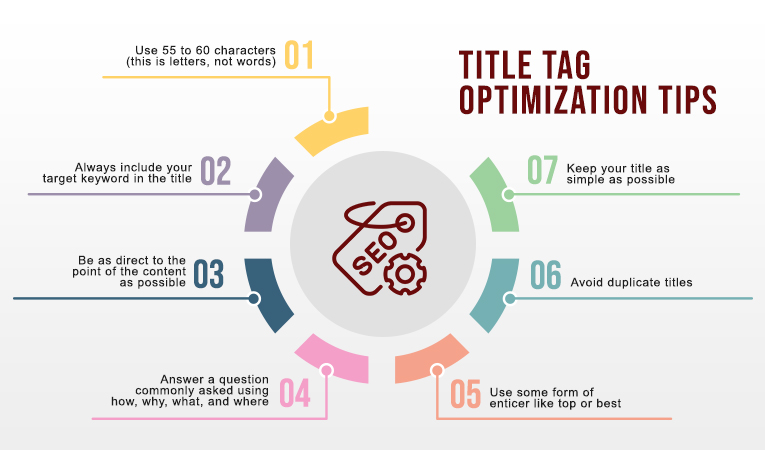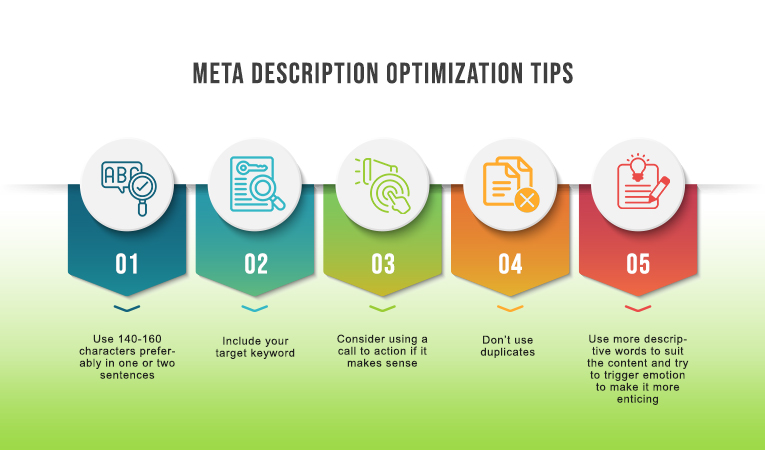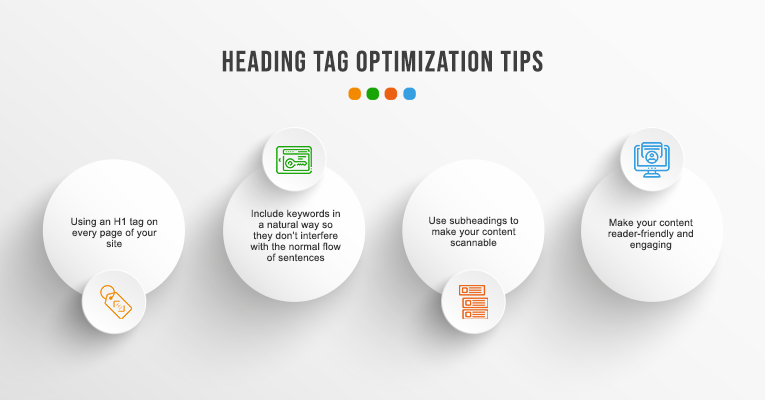It is frustrating knowing you are the best game in town, yet keep losing business to the competition. Doing a local search and finding that one company is always outranking you just adds insult to injury. However, their links offer a clue into what you could do to improve your share of the market. Here we look at the local SEO knowledge every small business owner needs if you want to outrank your competition.
Do an SEO Audit
Even if you are using a solid keyword strategy, your website could be riddled with SEO problems. These problems could be keeping you from reaching a top ranking. Therefore assessing your website is a good first step to understanding what you are doing wrong. An SEO audit looks at all the issues you have so you can fix them including:

- Broken links you might have added years ago that no longer go anywhere
- Pages that take too long to load
- Duplicate content on your service pages or blog
- Pages that can’t be indexed
- Poor sitemap structure or no XML sitemap at all
- Keyword stuffing where you’re using too many keywords on each page
- Poor grammar and page structure
- Inconsistent addresses and phone numbers
- Plagiarized content
The list goes on and on. While this represents some of the most common issues interfering with your SEO, a site audit will identify specific issues and provide recommendations on how to correct them.
Write Quality Content
Google always prefers quality content over the SEO tricks experts often recommend. But this is probably the hardest thing to come up with for your website. The goal of your content is to educate, resolve problems or even entertain prospects. You know better than anyone what information is relevant to your ideal customers. It’s easy to get carried away with keywords and use them as your sole inspiration to create content.
However, when you only use keywords it’s easy to get completely off track from what people really want. The best way to write quality content is to think about what you can teach your readers that will show them why you are the best product or service for that particular problem. So your not-so-easy task is finding the perfect balance that attracts Google’s search engines while resolving customer problems, or answering their questions. As long as you focus on your own expertise, and do so in an engaging manner, you are way ahead of the game when it comes to content.
And remember content isn’t just a blog. Images, infographics, video, white papers, etc. all provide content your readers can use. Your expertise and that of your team is one of the best ways to come up with interesting ways to tell your story, show people how to use your product or service, and answer common questions. Do this and you’ll be well on your way to creating exceptional content.
Include Keyword Research
Keyword research can begin by searching the most logical keywords your ideal customer might enter. What companies appear when you enter your target keywords? What do you find when you click on the links? What type of content are you reading? This provides inspiration for your own content, as well as shows you the types of keywords your competitors are using. You also want to consider “longtail” keywords and phrases.
These are very important as it helps address voice searches. Ideas for longtail keywords include the types of questions people might ask. These types of keywords tend to be focused on customer intent at the time of the search. As well, as a small business if your main customers are local, always include geo terms to help in local search rankings.
Claim Your Google My Business Profile
Google uses the information it can find on local businesses to populate local search results and the Google map. If you haven’t taken the time to complete your Google My Business (GMB) profile, the information is not complete, so isn’t considered “claimed” by Google’s search engines. You can go into your profile to claim your listing, and complete all the fields and options. This provides everything Google needs to populate your listing. When your business appears on local searches, everything customers need to know is right there including your contact information. It is a free digital marketing tactic every small business owner should leverage.
Consider the SERPs
SERPs are the pages that pop up for a search. Search some of your keywords and pay attention to what comes up. You might be quite surprised by the results. Because search engines like Google are only concerned with their users’ needs, they are getting pretty good at determining user intent. This has changed what search engines show in their SERPs quite a bit.
Do some research looking at the links, what appears on the map, and comparing the organic results below the map and the paid search results above. Are there any directories that appear you should be listed on? Click the links and learn more about your competitors. Where are the links sending you? Landing pages? Home pages? Internal service pages? All of these discoveries help you become better at understanding local SEO and the types of information the keywords you use should lead.
Plan Your Site Structure and Pages
Your keywords can also help you decide how to optimize your site structure and pages. Local search is all about location, and this is a major consideration for your site structure and pages. If you have one location, it becomes easier because you just have to make sure all of your pages are using your geolocation in your keywords, right? Wrong. You also want to consider all of the areas you service and create specific pages for them as well.
This really improves your local SEO efforts. You then also want to have service pages for everything you do. A single service page doesn’t do as well in SEO. So if you are a plumber, you need a service page with its own URL such as bobsplumbing/cloggeddrains/springfield, bobsplumbing/burstpipes/springfield, etc. When you plan out your pages using your keywords, service areas/locations and services, you can improve both your customers’ ability to find you and your SEO ranking for local searches.
Optimize Your Title Tags
Title tags are the title for each link result on the SERP. These titles can be optimized using some basic tips:

- Use 55 to 60 characters (this is letters, not words)
- Always include your target keyword in the title
- Be as direct to the point of the content as possible
- Answer a question commonly asked using how, why, what, and where
- Use some form of enticer like top or best
- Avoid duplicate titles
- Keep your title as simple as possible
These basics will help improve your local SEO efforts.
Optimize Your Meta Descriptions
Meta descriptions appear under your title tags and can also be optimized with these tips:

- Use 140-160 characters preferably in one or two sentences
- Include your target keyword
- Consider using a call to action if it makes sense
- Don’t use duplicates
- Use more descriptive words to suit the content and try to trigger emotion to make it more enticing
You have more space here to let people know what answers they will find, so take advantage of it.
Optimize Your Heading Tags
Your heading tags don’t actually show up in the SERPs but instead are the headings on your web pages. These headings are very important and can be optimized by:

- Using an H1 tag on every page of your site
- Including keywords in a natural way so they don’t interfere with the normal flow of sentences
- Use subheadings to make your content scannable
- Make your content reader-friendly and engaging
This is a lot of work. However, if you go through your site with your keyword list, you’d be surprised how many opportunities there are to use them in your headings.
Find Local Directories
When you conduct local searches using your keywords, take note of any directories that come up. When you appear on local directories you create more “citations” for your company name, address and phone number. Google uses this as a factor when ranking local businesses, and will search citations to help determine if your services are relevant. Be sure the information you provide to each directory is identical, or else Google won’t consider them related.
Build More Backlinks
Along with citations, search engines also look for backlinks. These are links on other authoritative and local sites leading to your own site. You can build more backlinks to your site by speaking to local businesses asking if they can add a link to your site. You can offer to link to theirs. You can also offer to write guest blogs for relevant businesses and vice versa.
Ready for more than the basics with your marketing strategy? Our team can help take you to the next level. Give us a call to learn more!
